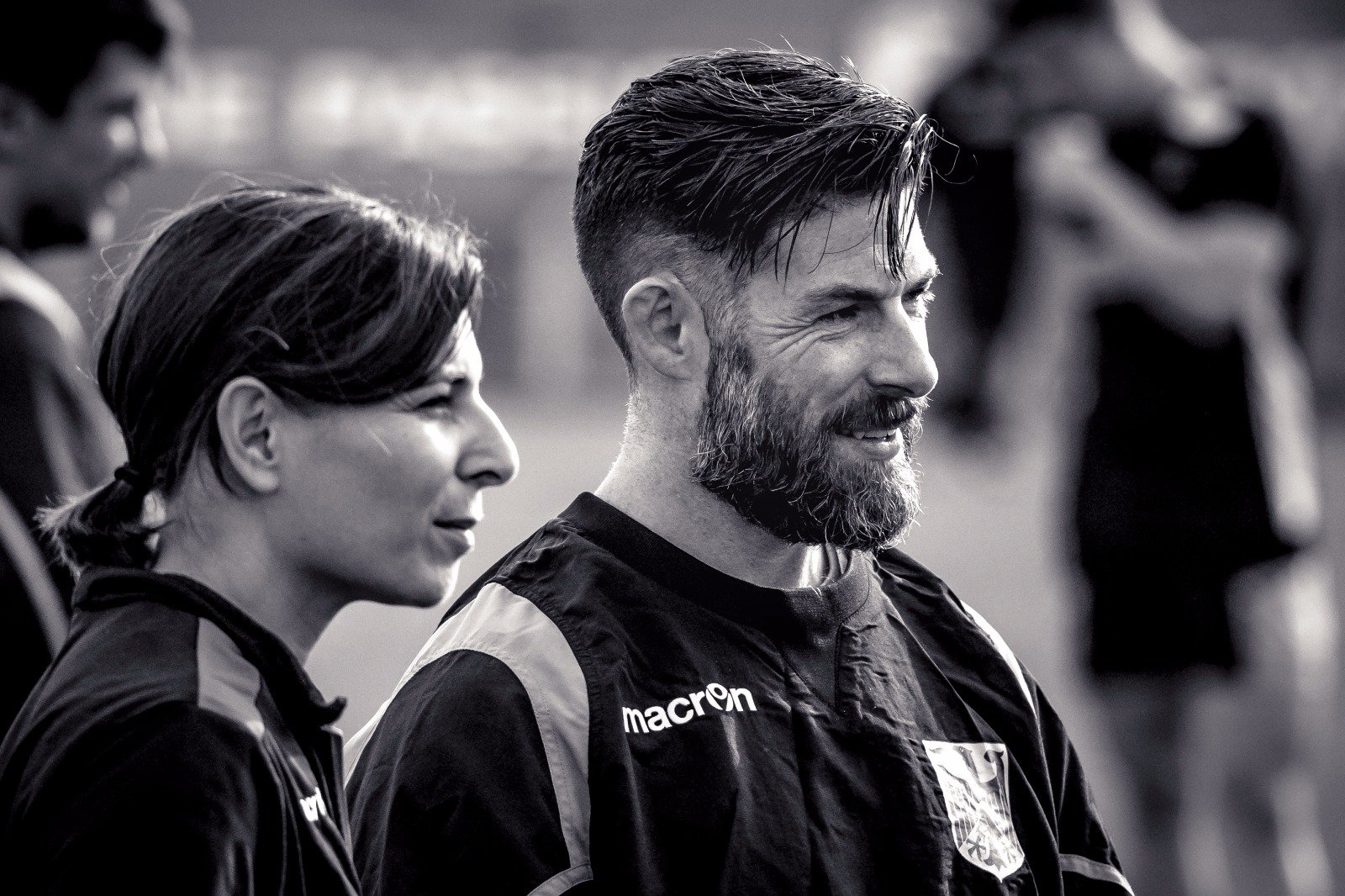Neill Potts
I left BRA in 1996 disappointed with my A Levels and no idea what to do. Encouraged by concerned parents, I moved to Scotland and took a chance on a recently founded Applied Sport Sciences degree. That move led me on a 20-year journey through high performance sport that’s brought me to Australia, leading teams that develop future Olympians; a long way from the Cliftonville Road.
with Germany physio trying to qualify Germany for the RWC 2019
I’ve been privileged to some cool things in my career; train world champions, transform struggling sports teams, and build departments for national sporting organisations. I spent a long time working in professional rugby touring the world and preparing teams for major international tournaments, including the Six Nations and Rugby World Cup. The adventures have been great, but it’s the lessons from some impressive people I’ve worked with who taught, challenged, and changed me that I value most. There are plenty of stories and insights I could share, but I’ll focus on three principles from topflight sport that seem to apply universally. Hopefully they’ll be of some use to you.
Fundamentals
By 2007 I had graduated, formed part of the UK’s strength and conditioning vanguard at the Scottish Institute of Sport, worked my way through most of a PhD, joined Scotland’s National Rugby Team, and spent 18 months leading sport science and conditioning services at Edinburgh Rugby. The club was not going well. We finished the previous season near the bottom of the table with the worst defensive record in the league. We were struggling until October when Andy Robinson – a World Cup winning coach - joined us.
He focused on developing excellent fundamentals. Drilling basic skills every day with 20 minutes of each session focused on defence. 18 months later we finished second in the league with the best defensive record.
Practicing basics is tedious, especially when you’re good. They’re also the foundation of mastery that separates champions from the rest. To develop the speed, accuracy, and consistency needed to withstand top level pressure, your fundamentals have to be on point.
If you want to succeed, master the fundamentals.
Talent
conditioning with Ross Ford
The most naturally gifted athletes tend to be less successful than you might think. They seem untouchable as they rise through the grades - until they reach a moment of reckoning. In contrast, the prevailing story among champions is one of struggle, building adaptability and resilience as they move down a bumpy road to success. They work exceptionally hard at addressing their limitations and keep progressing as the blessed few gradually fade away.
I‘ve encountered the ‘hard work beats talent’ phenomenon several times. We once invited a local club player to train while our international players prepared for the 2007 World Cup with the National Squad. He was solid, but not fantastic. Coaches quietly commented on how he had a great attitude but would never make a pro player. He had different ideas.
At every opportunity he’d grab coaches to analyse training or games. He’d practice basic skills after training when others left the field. On days off he’d work with the skills coach while others relaxed. Three years later, now a pro player, he missed out on World Cup selection. Again, coaching discussions praised the attitude but reflected he wasn’t an international quality player; he’d be a journeyman pro at best. Six years later he was the first name on the team sheet, displaced the four players ahead of him, was respected in the topflight clubs he played for in three different countries, Captained his country, and toured with the British and Irish Lions.
half time TV shot RWC 2015 Scotland v USA
Genetics play a large part in your overall ability. However, genes don’t eliminate the need for hard work, they clarify it. If you want to succeed, talent is not enough; you need to tackle the things you’re not good at.
Learn
We didn’t perform at the 2011 Rugby World Cup and found ourselves flying back to Scotland before the play-off stages as a result. Four years later, we’d learnt our lessons and finished the pool stages full of confidence.
We played Australia in the quarter finals and were winning with just over a minute left on the clock. The crowd was incensed. Australia had just been awarded a penalty in kicking range. The referee hadn’t seen the ball coming off an Australian hand and penalised our player for deliberate off-side. Final score 35-34, Australia win. Gut wrenching!
It would have been easy to blame the referee and move on. It wasn’t his fault. It was ours. While the referee’s mistake gave Australia a winning score, we made numerous errors that put us in that position in the first place. The loss highlighted changes we needed to make to progress. The resulting adjustments helped us break into the Top 5 World Rankings for the first time ever; a great achievement for a nation averaging 30% of the resources of other Top 10 opponents.
Successful people don’t always win. They learn from failures and keep progressing.
Western Australian Institute of Sport
I‘ve been fortunate to enjoy a career in high performance sport because of what others have done on the field of play. It’s taken me around the world and exposed me to some exceptional individuals. Not everyone can make the first team or win championships, but if you can apply these simple principles from high performing people consistently, you’ll go a long way to realising your potential.
Neill Potts BSc PhD is Performance Team Director at the Western Australian Institute of Sport and was formally Head of Athletic Performance at the Scottish Rugby Union.




